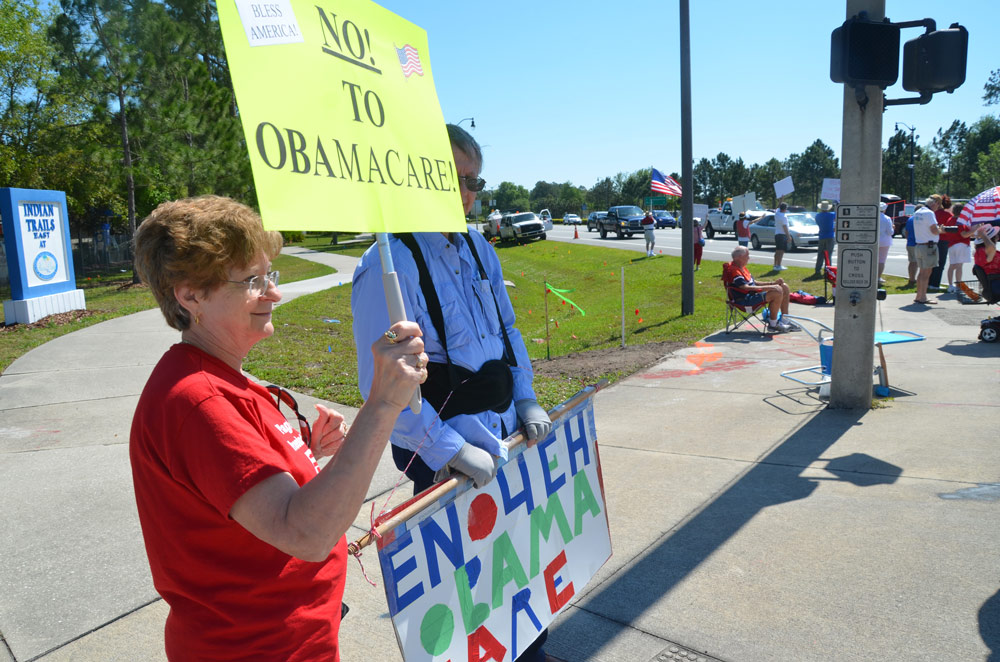Tens of millions of Americans’ financial and physical well-being will be at risk as a result of the tax and spending bill that the House voted to send to President Donald Trump’s desk on Thursday, enacting much of his domestic agenda. The bill reduces federal health spending by roughly $1 trillion over ten years.
It is anticipated that the plan, which was approved by both the House and the Senate without a single Democratic vote, will undo a large number of the health coverage improvements made under the Obama and Biden administrations. Though Republicans claim the trade-off was far higher expenses borne by taxpayers and increased fraud, their policies made it simpler for millions of individuals to receive health care and brought the U.S. uninsured rate to record lows.
According to the Congressional Budget Office, the legislation that Trump is anticipated to sign on Friday, Independence Day, will result in almost 12 million more people without insurance by 2034 due to cuts in federal support for the Medicaid and Affordable Care Act markets. Hospitals, assisted living facilities, and community health centers will therefore have to bear a greater portion of the expense of treating uninsured patients, which is predicted to negatively impact their bottom lines. Some might cut staff and services or shut down completely.
The GOP’s ideas could impact health care access in the following five ways.
Do you require Medicaid? Next, find employment
A proposed Medicaid work requirement, which would terminate coverage for millions of members who fail to fulfill new job or reporting requirements, would result in the biggest reductions in health care costs.
Some Medicaid enrollees will be required to submit documentation on a regular basis demonstrating that they are working, volunteering, or attending school for at least 80 hours per month, or that they are eligible for an exemption, such as caring for a young child, in 40 states and Washington, D.C., all of which have expanded Medicaid under the Affordable Care Act. In January 2027, the new requirement will go into effect.
People in the ten states, most of which are controlled by Republicans, that have not extended Medicaid to non-disabled adults are exempt from the bill’s requirements.
Employment will not be significantly impacted by the regulation, according to health researchers. According to KFF, a nonprofit organization that provides health information, including KFF Health News, the majority of working-age Medicaid participants who do not receive disability benefits are either employed or seeking employment, or are unable to do so because they have a disability, are enrolled in school, or are caring for a family member.
Budget overruns and administrative concerns, such as eligible enrollees losing coverage due to paperwork issues, have plagued state experiments with work requirements. According to the Georgia Budget & Policy Institute, a neutral research group, Georgia’s work requirement, which was formally introduced in July 2023, has cost more than $90 million, of which just $26 million has been allocated to health benefits.
According to Yale School of Public Health professor Chima Ndumele, the hidden costs are enormous.
In rural communities, less money translates into less care.
Targeting states with belt tightening could result in fewer hospitals, medical experts, and health services, particularly in rural areas.
In order to enhance Medicaid payments to hospitals, assisted living facilities, and other providers as well as to private managed-care organizations, almost every state has implemented provider taxes for decades. The GOP’s plan would limit this practice.
States frequently pay the institutions more than Medicaid would otherwise pay by using the federal funds collected from taxes. Compared to private insurance and Medicare, the program for those over 65 and individuals with disabilities, Medicaid typically pays lesser prices for care. However, the Commonwealth Fund, a nonprofit organization dedicated to health research, claims that some hospitals receive higher Medicaid payments than Medicare because of provider levies.
According to hospitals and assisted living facilities, they use these additional Medicaid funds to improve care for all patients by adding new services or expanding existing ones.
Generally speaking, rural hospitals have narrow profit margins and are supported by Medicaid government contributions. After reviewing the initial House version of the bill, researchers from the Council G. Sheps Center for Health Services Research came to the conclusion that it would force over 300 rural hospitals—many of which are located in Kentucky, Louisiana, California, and Oklahoma—to reduce or close their services.
To lessen the impact on rural hospitals, Senate Republicans added a $50 billion fund to the package. The funding will be disbursed over a five-year period beginning in 2027.
More Difficult to Obtain and Maintain ACA Coverage
The new law will make it more difficult for people with Obamacare plans to enroll and keep their coverage.
Instead of being able to automatically reenroll, as more than 10 million individuals did this year, policyholders in the ACA marketplace will need to update their income, immigration status, and other information annually. Because the measure shortens the yearly open enrollment period by roughly one month, they will also have less time to enroll.
Before getting government subsidies to help pay their monthly premiums, those who apply for coverage outside of that time frame—for example, because they need to add a spouse or newborn to an existing policy, lose their job, or need to add another insurance policy—must wait for all of their paperwork to be completed. They now receive up to 90 days of premium assistance during the weeks-long application process.
Opponents claim the changes are Trump’s best attempt to reverse Obamacare, while Republican lawmakers and certain conservative policy think tanks, such as the Paragon Health Institute, say they are necessary to curb fraudulent enrollments.
Additionally, the proposal does not advocate for the continuation of the more generous premium subsidies implemented during the COVID-19 epidemic. According to KFF, if Congress does nothing, those improved subsidies will stop at the end of the year, causing premiums to increase by an average of 75% the following year.
Using Medicaid? Spend More to See Physicians
For appointments, many Medicaid enrollees should anticipate paying extra out of pocket.
According to Trump’s proposal, states that have expanded Medicaid must charge enrollees up to $35 for certain treatments if their income falls between 138% of the federal poverty level ($21,597) and the federal poverty threshold, which this year is $15,650 for an individual.
Medicaid users frequently pay nothing for medical treatments since research indicates that even minor copayments induce low-income individuals to put off necessary care. Some governments have increased fees for specific services under $10 in recent years.
Those seeking primary care, mental health treatment, or drug addiction therapy will not be covered by the coverage. For subscribers seeking ER care for non-emergencies, the bill permits states to implement even higher cost sharing. However, hospitals and other providers might have to pay if Medicaid patients don’t pay.
Lawfully Present Immigrant Cuts
Because the GOP plan would eliminate the subsidies that keep rates cheap, it could result in the loss of ACA marketplace coverage for hundreds of thousands of lawfully present immigrants, including refugees, asylum-seekers, and victims of human trafficking. Green card holders will not be affected by the ban.
According to marketplace directors in California, Maryland, and Massachusetts as well as health analysts, the immigrants who will lose subsidies under the legislation are typically younger than the U.S. population as a whole, so their departure would leave an older, sicker, and more expensive group of marketplace enrollees, further driving up marketplace premiums.
John Slocum, executive director of the advocacy group Refugee Council USA, said in a statement that denying legal immigrants access to health care would cause irreversible harm to the people we have pledged to protect and place needless financial burdens on already overburdened local systems.
The stricter immigration policies of the Trump administration are reflected in the law. However, the package does not contain a plan that would have decreased federal Medicaid payments to states like California that use their own funds to support undocumented immigrants because it violated Senate rules.
KFF Health News’s Phil Galewitz, Julie Appleby, Renuka Rayasam, and Bernard J. Wolfson.Julie Rovner, chief Washington correspondent for KFF Health News, provided reporting assistance.
One of the main programs at KFF, an independent source of journalism, polling, and health policy research, is KFF Health News, a nationwide newsroom that specializes in in-depth reporting on health-related topics. Find out more about KFF.







